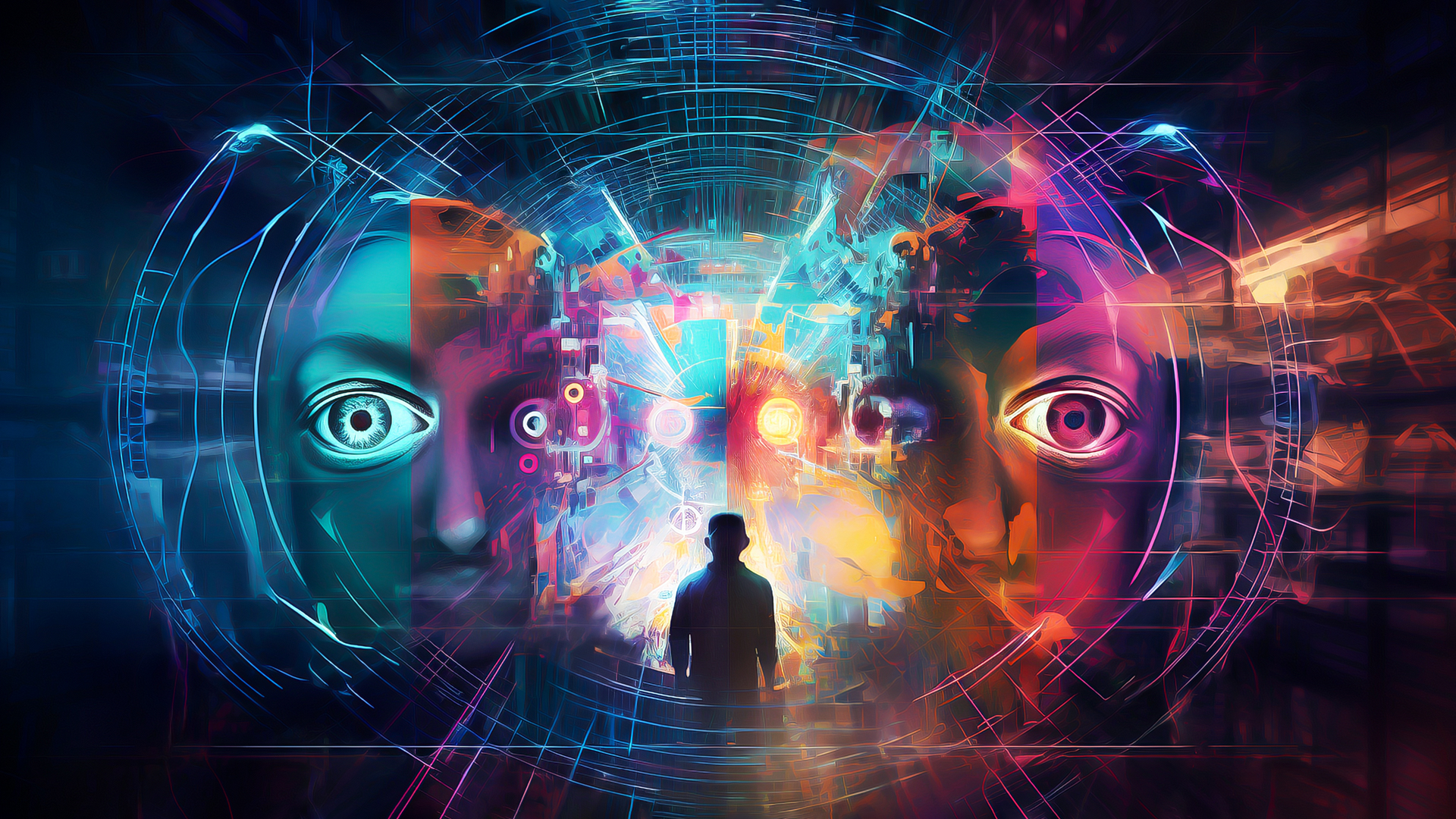
Science fiction books and films have predicted it for years, but now it is actually upon us. Artificial Intelligence is here, and it is being used in the television and film industry.
Like any new tool, the desire is to use AI to improve productivity, while maintaining quality. AI also helps us do tasks that would just be impossible for a single individual to do.
Anyone who has attended a few NAB Shows knows that buzzwords and hot technologies rise and fall, and artificial intelligence is currently the hot technology—expect to find references to AI across the show floor.

“It’s an incredible time to be involved with AI and media right now, and the needs can often be both simple and profound,” said Skip Levens, marketing director for media & entertainment at Quantum. “For example, there are a ton of language models that will transcribe audio and tag it in a video timeline. But what about when you have decades of priceless archival film where multiple people are not just talking over each other, but talking in different languages? That turns out to be great example of where standard tools don’t work well.”
Using AI to recognize what sort of material you want and to understand the languages can streamline an otherwise nearly impossible task.
“We have a customer using Quantum’s ActiveScale Cold Storage solution, offering S3-enabled object storage for hot (active) and cold (inactive) data sets, to support the long-term archiving that reduces cold storage costs by up to 60 percent,” Levens said. “This is especially crucial as companies realize the value that today’s data could hold in the future, whether it be a week or decades from now.”
Next Generation
At the NAB Show, ENCO will unveil enCaption Sierra, the company’s next-generation automated closed-captioning solution. Sierra can pair with ENCO’s enTranslate software to offer live translation to more than 37 languages in real-time.

ENCO will also have some flashy AI possibilities in its NAB Show booth.
“This year, we will highlight how broadcasters can utilize ENCO’s Qimera live virtual production and augmented reality solution,” said Ken Frommert, president of ENCO. “We will also debut an AI-generated virtual anchor within a 3D space. In our booth, we will use AI and virtual production tools to demonstrate a virtual anchor reporting live news.”
Amazon Web Services (AWS) will be at NAB Show 2024 highlighting each of the company’s six solution areas for media & entertainment operations. Focusing on generative AI, monetization and cloud production, it will use the example of newsroom production as the backdrop of how to apply a number of different solutions.

“Visitors to the AWS booth will also learn how generative AI is being used to enhance viewing experiences for audiences and free up time during production,” said Tracy Geist, global head of media & entertainment for games and sports marketing at AWS. “While AI and machine learning (ML) have already begun to transform broadcast production processes in many ways, our activations at NAB will highlight how the industry is still just scratching the surface of all the day-to-day applications of the technology.”
Geist was eager to give examples of how big customers are using AI to improve both the viewing experience and broadcasters’ production workflows.
AI is playing a big role in improving the ad-insertion process by making it easier to identify and automate natural ad breaks in content to ensure higher-quality broadcasts/"
Tracy Geist, AWS
“AI is playing a big role in improving the ad-insertion process by making it easier to identify and automate natural ad breaks in content to ensure higher-quality broadcasts,” she said. “Using AI also enables content providers to insert ads that match the context of what’s happening, and more personalized ads based on viewer interests, using tools like Amazon Personalize.”
Geist also said that FOX Sports worked with AWS on its AI-powered Catch Up with Highlights feature, which is powered by Amazon’s open-source Media Replay Engine framework, as well as several AWS services and solutions.
“The engine behind the feature ingests broadcast streams, identifies valuable match moments through AI-trained computer vision, then encodes delivery streams with metadata across user devices,” she said. “By capturing key moments and events as they unfold, Catch Up with Highlights makes it easier for audiences to stay up-to-date with the action, and experience the excitement of the game, regardless of when they start watching.”
Natural Language Companion
At the NAB Show, Nice People At Work (NPAW) will present its newly enhanced version of NaLa, an AI-powered, natural-language companion app that helps video services work with data and the NPAW Suite.

“Our platform provides so much data and so many options for working with it that it can be overwhelming for our smaller and newer customers,” said Till Sudworth, head of the video business unit and member of the management board at NPAW. “At the same time, we wanted to enable even the most seasoned NPAW users to derive faster insights. By streamlining the process of identifying the root causes of errors, we are empowering all our customers with the ability to resolve issues more quickly and cost-effectively.”
Recently updated, NaLa 2.0 is integrated into the NPAW Suite of apps to help streaming operators obtain actionable insights into areas like service performance, viewer-perceived quality, and user behavior. Users can use either voice or text to ask NaLa questions about, for instance, their service’s performance and user engagement, and quickly receive answers in both text and graph formats. NaLa can handle these requests in almost every language in the world.
“Users can also click on a graph to gather in-depth analyses in seconds, revealing hidden trends, anomalies, and key learnings,” Sudworth said. “Additionally, users can request NaLa to create custom dashboards tailored to their specific needs or ask for guidance on how to use the platform.”
AI and its derivatives shows great promise, and the next few years will go a long way in embedding these technologies in our work and private lives. Most of us already have a version of AI in our homes and pockets—think “Alexa” and “Siri”—and AI is already toiling away behind the scene in many industries, including the media & entertainment industry.
The promise is that AI will lead to better, faster and more-targeted information and entertainment. Will the promise live up to the actual implementation?
Ask me in 2030.







